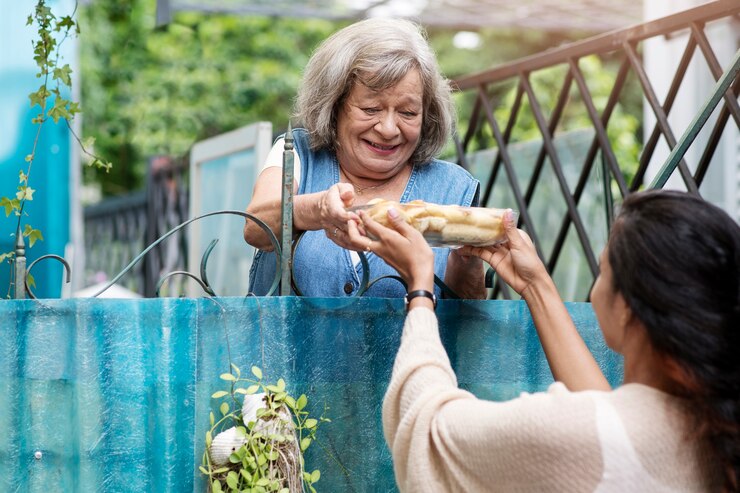The Joy of New Hobbies: Unusual Activities to Try in Your Golden Years

Embracing new hobbies in your golden years can be a source of immense joy and fulfillment. As we age, finding activities that spark passion and curiosity can enrich our lives and contribute to our physical and mental well-being. This guide explores some unusual and exciting hobbies that seniors might enjoy, offering fresh ways to engage, learn, and thrive.
The Benefits of Exploring New Hobbies

Mental Stimulation
New hobbies stimulate the brain, keeping it active and engaged. Learning new skills or tackling new challenges can help maintain cognitive function and combat age-related mental decline. Activities that require problem-solving, creativity, or concentration are particularly beneficial. Studies have shown that engaging in mentally stimulating activities can enhance memory and cognitive abilities, potentially reducing the risk of cognitive disorders such as Alzheimer’s disease.
Physical Health
Many hobbies involve physical activity, which is crucial for maintaining overall health. Whether it’s gentle exercise or vigorous physical pursuits, staying active helps improve cardiovascular health, muscle strength, and flexibility. Regular physical activity is also linked to lower risks of chronic diseases such as diabetes, hypertension, and obesity. Even low-impact activities, like walking or gardening, can contribute to a healthier lifestyle and better mobility.
Social Connections
Engaging in new hobbies often leads to meeting new people and expanding social networks. Group activities, classes, and clubs provide opportunities to connect with others who share similar interests, reducing feelings of loneliness and fostering new friendships. Social interaction is key to maintaining emotional health, and building new relationships can create a supportive community that enhances overall well-being.
Emotional Well-being
Pursuing a hobby provides a sense of purpose and achievement. It can be a source of joy, relaxation, and stress relief, contributing to a more balanced and positive outlook on life. Engaging in activities you love can elevate mood, decrease feelings of anxiety or depression, and boost self-esteem. Hobbies offer a way to channel energy into something fulfilling and enjoyable, promoting emotional resilience.
Unusual Hobbies to Try in Your Golden Years

1. Urban Beekeeping
Urban beekeeping is a rewarding hobby that combines environmental stewardship with a touch of adventure. Starting a small hive in your garden or even on a balcony can contribute to local pollination efforts and provide you with honey. Beekeeping helps sustain local ecosystems and offers a unique connection to nature. Many communities offer beekeeping courses for beginners, making it accessible for those new to the practice. Beekeeping can be a fascinating and hands-on way to learn about insects, agriculture, and sustainability.
2. Birdwatching and Citizen Science
Birdwatching can be a peaceful yet exhilarating, providing opportunities to observe and document various bird species. This hobby can be done from your backyard or on nature walks and is suitable for all levels of mobility. Engaging in citizen science projects, like tracking bird migrations or contributing to bird population studies, adds a meaningful dimension to this hobby. By participating in these projects, you contribute valuable data to conservation efforts and connect with a broader community of bird enthusiasts.
3. Geocaching
Geocaching is a modern treasure hunt that uses GPS technology to locate hidden caches or containers placed by other participants. This activity combines outdoor exploration with problem-solving and can be an exciting way to discover new places and meet fellow geocachers. Geocaching encourages physical activity, outdoor adventure, and the thrill of discovery. It’s a great way to explore local parks, trails, and landmarks while engaging in a fun and interactive scavenger hunt.
4. Pottery and Ceramics
Pottery and ceramics offer a creative outlet and a hands-on experience with tangible results. Whether it’s crafting your dishes, vases, or decorative items, working with clay can be both therapeutic and satisfying. Many community centers and studios offer classes for all skill levels, from beginners to advanced. Pottery encourages creativity, fine motor skills, and mindfulness. Shaping and glazing clay can be meditative, providing a sense of accomplishment and relaxation.
5. Learning a New Language
Learning a new language can be a fun and intellectually stimulating hobby. It opens doors to new cultures and enhances cognitive abilities. Language classes, online courses, or language exchange meetups provide various ways to immerse yourself in a new language. Mastering a new language improves memory, cognitive flexibility, and problem-solving skills. It also fosters cultural appreciation and can enhance travel experiences.
6. Astronomical Observation
Stargazing and astronomical observation offer a window into the universe, fostering a sense of wonder and curiosity. With the help of a telescope or even a good pair of binoculars, you can explore celestial events, constellations, and planets. Astronomy can be a solitary or social hobby, depending on whether you observe alone or join local astronomy clubs. It’s a fascinating way to connect with the cosmos, learn about space science, and experience the beauty of the night sky.
7. Indoor Gardening
Indoor gardening, including growing herbs, succulents, or bonsai trees, allows you to cultivate greenery in your living space. This hobby can be particularly rewarding if you have limited outdoor space or live in an apartment. Indoor gardening offers improved air quality, reduced stress, and a sense of accomplishment. It’s also a low-impact activity that can be adapted to various physical abilities. Starting an indoor garden can be a relaxing and productive way to bring nature indoors.
8. Historical Reenactments
Participating in historical reenactments can be an engaging way to explore history and enjoy costume play. Reenactments often involve detailed research and participation in historical events, providing a unique and immersive experience. This hobby allows you to learn about different historical periods, engage in educational activities, and connect with others interested in history. It’s a fun and educational way to experience the past and participate in living history events.
9. Crafting with Recycled Materials
Crafting with recycled materials combines creativity with environmental consciousness. Projects like creating art from discarded items or repurposing old furniture can be both eco-friendly and satisfying. This hobby encourages sustainability and innovation, allowing you to create unique and meaningful pieces. Recycled crafting can involve various techniques, from painting and sculpting to sewing and woodworking. It’s a rewarding way to reduce waste while expressing your artistic talents.
10. Virtual Reality Experiences
Virtual reality (VR) offers various experiences, from exploring virtual landscapes to participating in immersive games. VR technology can provide stimulating and interactive experiences, allowing you to travel, play, and learn in a digital space. VR can be used for various purposes, including virtual tours, educational simulations, and fitness games. It’s a modern hobby that combines technology with entertainment, offering endless possibilities for exploration and engagement.
How to Get Started with a New Hobby

Research and Choose
Begin by researching hobbies that pique your interest. Consider what excites you and what aligns with your physical abilities and lifestyle. Online forums, local clubs, and community centers can provide information and recommendations. Look for hobbies that match your interests and goals, whether you seek relaxation, creativity, or physical activity.
Find Local Resources
Look for classes, workshops, or groups in your area that offer opportunities to learn and engage in your chosen hobby. Community centers, libraries, and senior centers often have resources and programs tailored to older adults. Many local organizations offer beginner classes or social groups related to various hobbies. Exploring these resources can help you find support and guidance as you start a new hobby.
Start Small
Begin with beginner-level activities and gradually progress as you gain confidence and skill. Starting small helps you build a solid foundation and prevents feelings of overwhelm. Choose a simple project or activity, and gradually take on more complex challenges as you become more comfortable. Setting achievable goals can help you stay motivated and enjoy the learning process.
Connect with Others
Join clubs or groups related to your hobby to meet like-minded individuals. Social connections can enhance your experience and provide motivation and support. Look for local clubs, online forums, or social media groups dedicated to your hobby. Connecting with others who share your interests can offer valuable advice, encouragement, and camaraderie.
Be Patient and Persistent
Learning a new hobby takes time and practice. Embrace the learning process and be patient with yourself. Persistence is key to developing new skills and fully enjoying the hobby. Don’t be discouraged by initial challenges or setbacks. Instead, view them as opportunities for growth and improvement. Celebrate your progress and enjoy the journey of discovery.
Conclusion

Exploring new hobbies in your golden years can be a source of joy, health, and personal growth. There are unusual and exciting hobbies to discover, whether you’re interested in creative pursuits, physical activities, or intellectual challenges. Embrace the opportunity to try something new, and you may find that your golden years are filled with renewed passion, adventure, and connection. Pursuing new hobbies enriches your life and contributes to your overall well-being, making your golden years truly golden.





